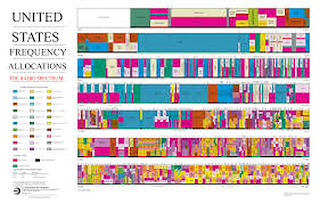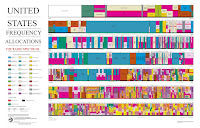On April 26, the Office of the U.S. Trade Representative (USTR) released its 2023 Special 301 Report on intellectual property (IP) enforcement and protection by our nation's trading partners. The Section 301 Report provides an overview of various initiatives by the Administration to promote stronger protections for Americans' IP overseas, tracks recent trends in other nations regarding IP, and offers succinct status reports on IP protections and enforcement – or lack thereof – in individual countries.
One area of attention in the Section 301 Report is online piracy. According to the report, in 2022 and early 2023, "countries such as Argentina, Bulgaria, Canada, Chile, China, Columbia, the Dominican Republic, India, Mexico, the Netherlands, Pakistan, Romania, Russia, Switzerland, Thailand, Ukraine, and Vietnam had high levels of online piracy and lacked effective enforcement." In particular, the report identified high incidence of music piracy by the use of "stream-ripping" software to create unlawful copies of songs in Canada, India, Korea (the report never specified North or South), Mexico, Russia, Switzerland, Ukraine, and the United Arab Emirates.Additionally, the Section 301 report called attention to the use of illicit streaming devices (ISDs) to facilitate unauthorized streaming of copyrighted video content offered by illicit Internet Protocol television (IPTV) services. As the report observed: "Today, there are many illegal IPTV services worldwide, many of which are subscription-based, for-profit services with vast and complex technical infrastructures." Significant levels of piracy via ISDs and illicit IPTV apps reportedly takes place in Argentina, Brazil, Canada, Chile, China, Guatemala, Hong Kong, India, Indonesia, Iraq, Jordan, Mexico, Morocco, Singapore, Switzerland, Taiwan, Thailand, Tunisia, and Vietnam. And report rightly observes that online piratical activities inflict substantial economic harm on American creators of copyrighted works and undermine the competitive viability of legitimate online platforms for distributing creative content.
The Section 301 report ought to be a reminder of the need for the U.S. to keep up pressure on foreign nations that do not take IP protection and enforcement seriously and turn a blind eye to online copyright piracy and other forms of IP theft and counterfeiting. In our book, Modernizing Copyright Law for the Digital Age: Constitutional Foundations for Reform(Carolina Academic Press, 2020), Free State Foundation President Randolph May and I provide a brief history of early U.S. efforts to secure copyright protections for Americans' creative works in foreign countries. Our book also addresses the need for domestic criminal copyright enforcement against large-scale commercial piracy operations as well as the need for strong copyright protections in free trade agreements.




















